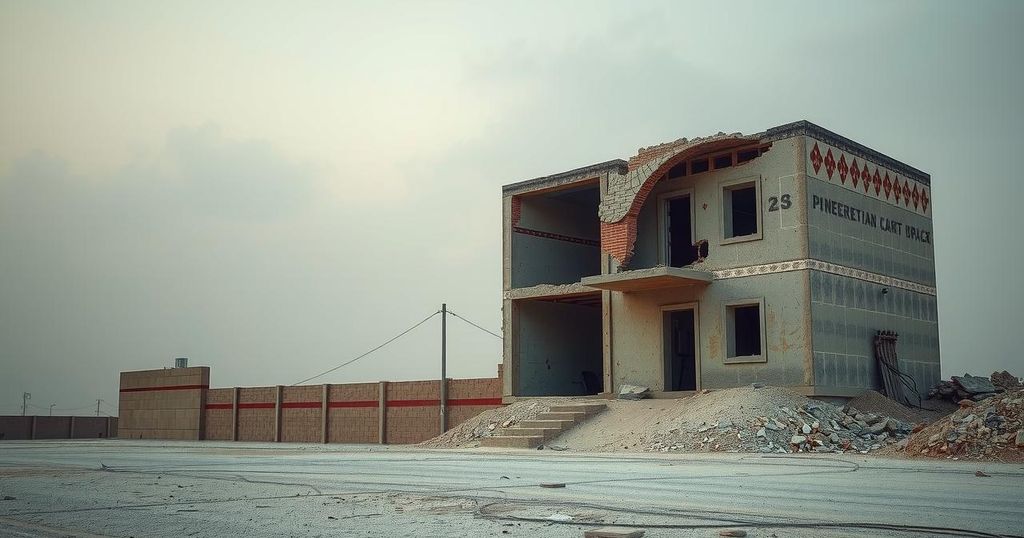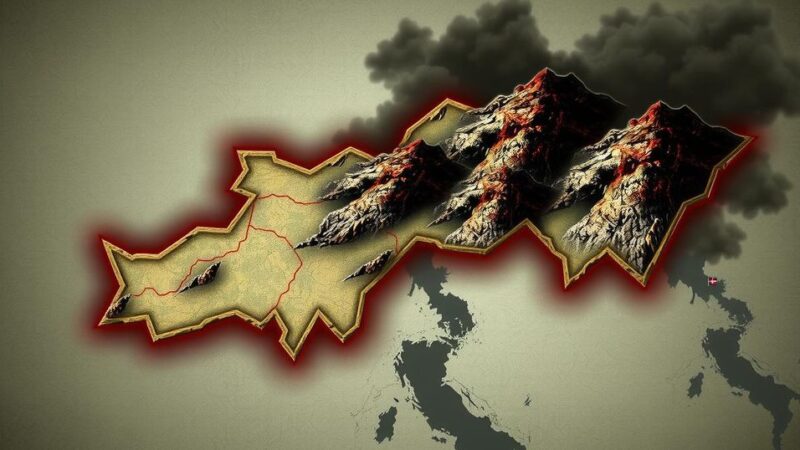Rwanda-backed M23 rebels have captured Nyabibwe in eastern Congo, escalating conflict despite a claimed ceasefire. Local residents express concerns over the situation as Congolese authorities view the ceasefire as superficial. The involvement of Rwandan forces underscores the regional implications of mineral resource control amid persistent violence and humanitarian crises.
Rwanda-backed M23 rebels have taken control of Nyabibwe, a town located 100 kilometers from Bukavu, despite a ceasefire they announced earlier this week for humanitarian reasons. Civil society leaders reported this escalation of hostilities, asserting that the ceasefire is merely a façade, as violence continues against Congolese forces in the mineral-rich eastern region. Reports indicate that M23 still maintains control over Goma following their earlier capture of the city.
Moïse Bisimwa, a resident of Nyabibwe, expressed concern over the situation, noting that the takeover by M23 began early in the morning. The Congolese government has condemned the ceasefire, labeling it as deceptive communication from the M23 group. Conflicting statements continue, with Congolese authorities affirming that significant resistance has been encountered from their forces during the conflict.
The M23 rebels reportedly receive support from approximately 4,000 Rwandan troops, significantly more than previous incursions. Rwandan President Paul Kagame has publicly distanced Rwanda from the rebellion while asserting the right to protect national interests. Analysts suggest that Rwanda’s interest in securing mineral resources in eastern Congo is a pivotal factor behind the ongoing conflict.
Both Rwanda and Uganda have been implicated in military interventions within Congo, purportedly to address threats from armed groups. The M23, described as the most powerful of numerous militias operating in eastern Congo, has made bold statements regarding their objectives, overshadowing humanitarian concerns amid ongoing violence and displacements.
In Goma, the local Red Cross has responded to the humanitarian crisis by collecting deceased bodies, highlighting the urgent need for medical and burial support as conflicts disrupt normal life. Concurrently, the International Criminal Court has initiated investigations into potential war crimes committed amidst rising violence, committing to pursue accountability without bias towards specific parties involved in the conflict.
The ongoing conflict in eastern Congo has roots in historical tensions involving ethnic groups, particularly between Tutsi and Hutu communities, notably exacerbated by the Rwandan Genocide of the 1990s. M23 emerged as a dominant force in the region, leveraging the instability to gain territorial control and access resources. The international community, including organizations like the United Nations, has responded by monitoring human rights violations and providing humanitarian assistance amid increasing violence and extensive displacement of populations.
The situation in eastern Congo remains critical, with Rwanda-backed M23 rebels intensifying their military aggression despite a declared ceasefire. The conflict highlights the complexity of regional dynamics involving ethnic tensions and resource control. As humanitarian crises escalate, local authorities and international bodies call for urgent intervention to address both immediate needs and long-term accountability for war crimes.
Original Source: apnews.com






